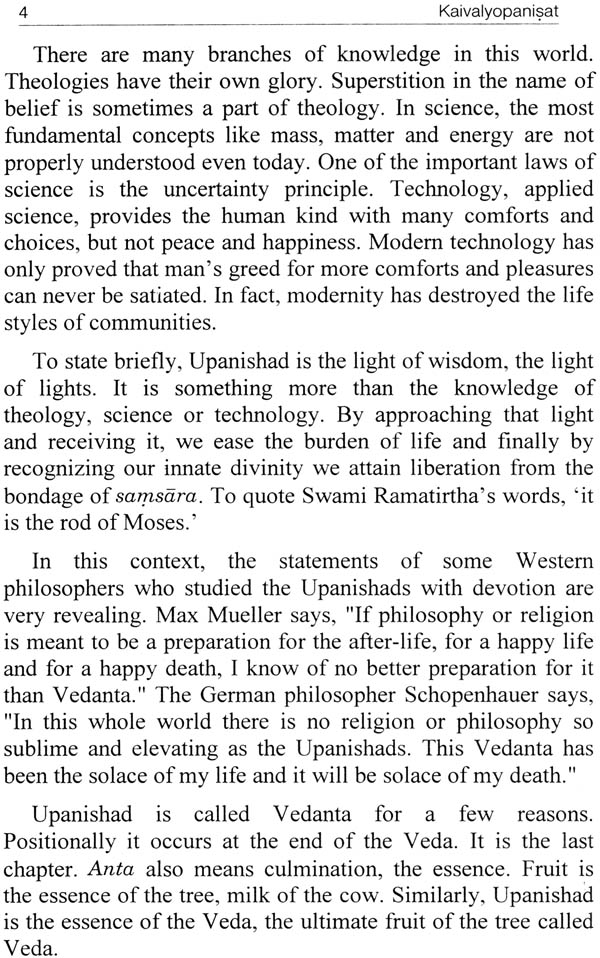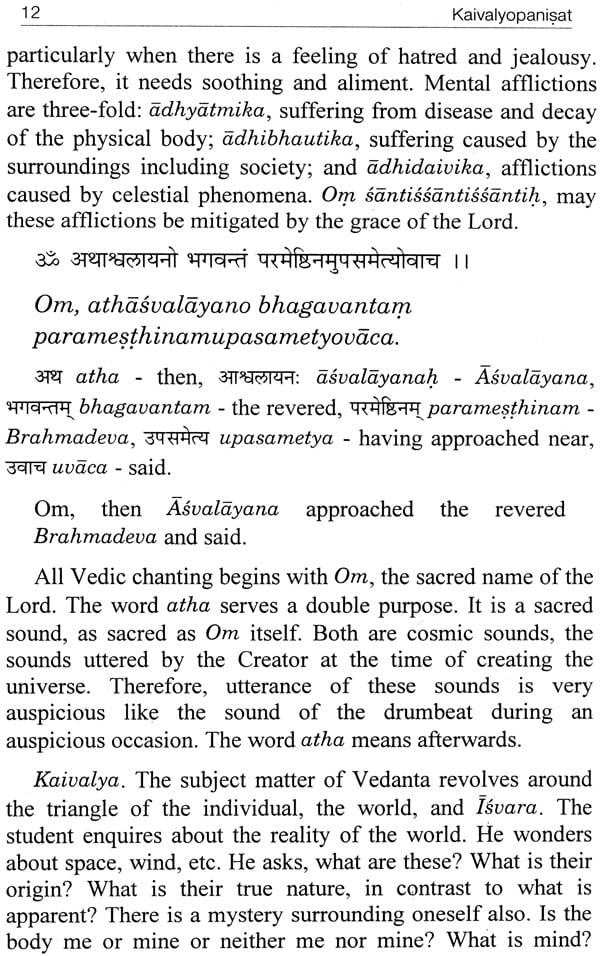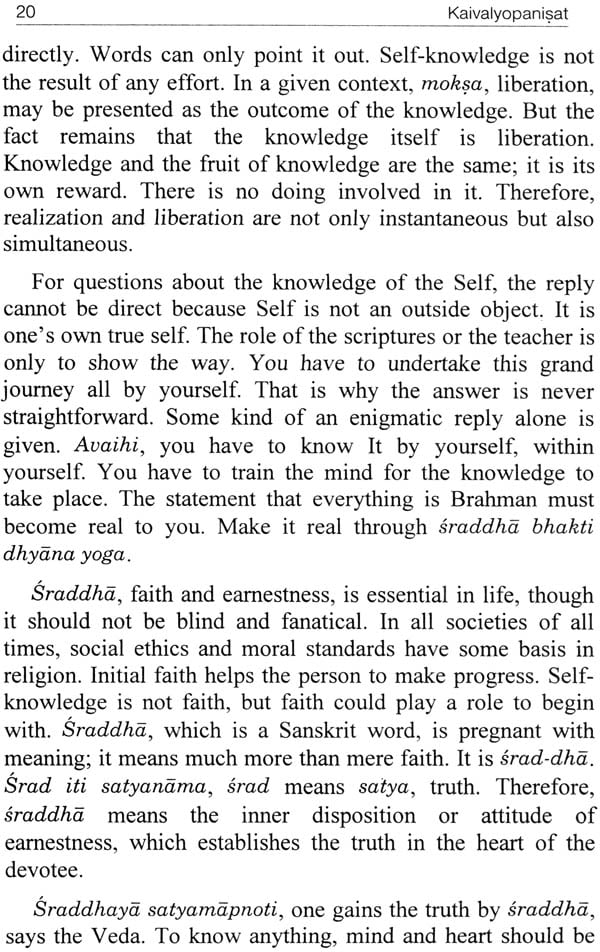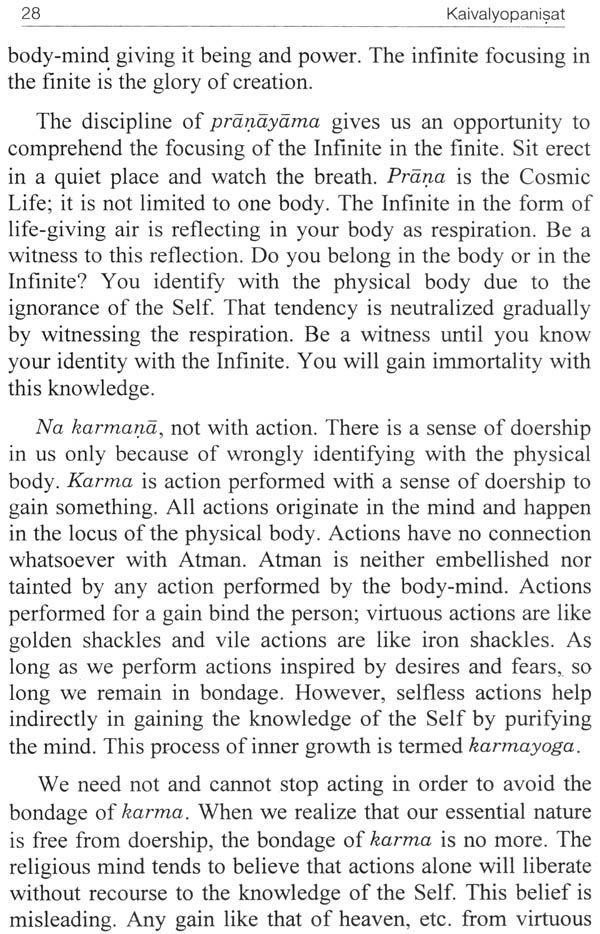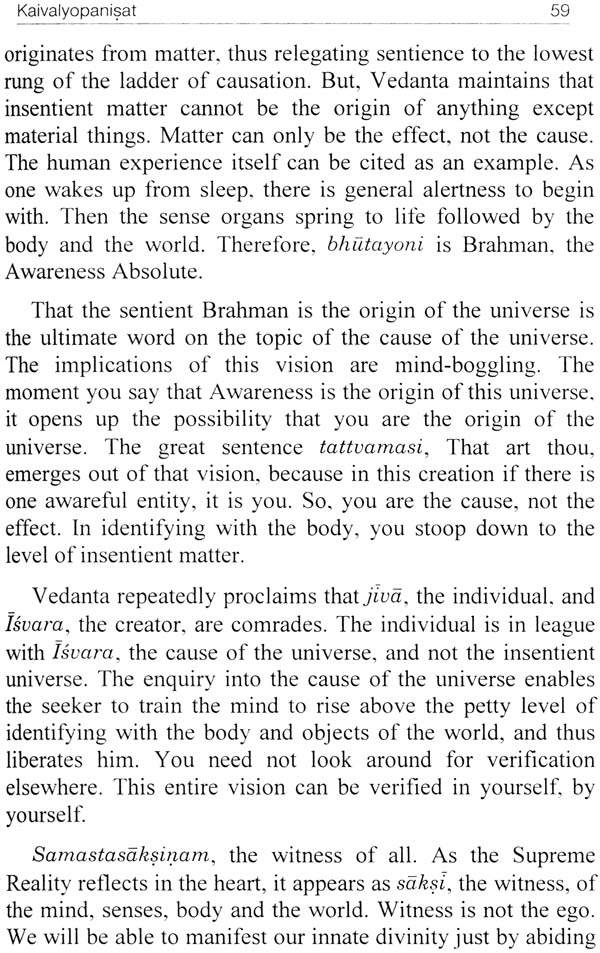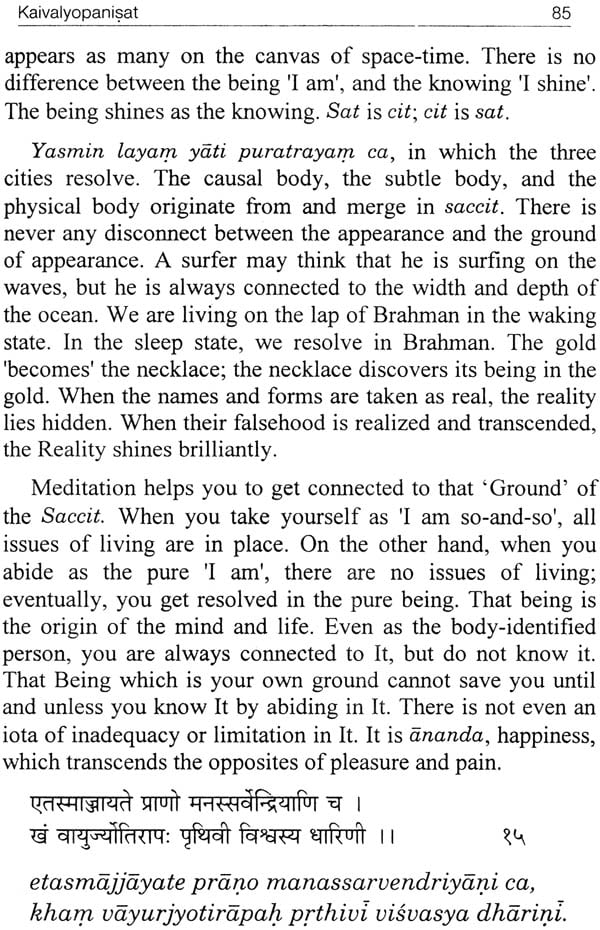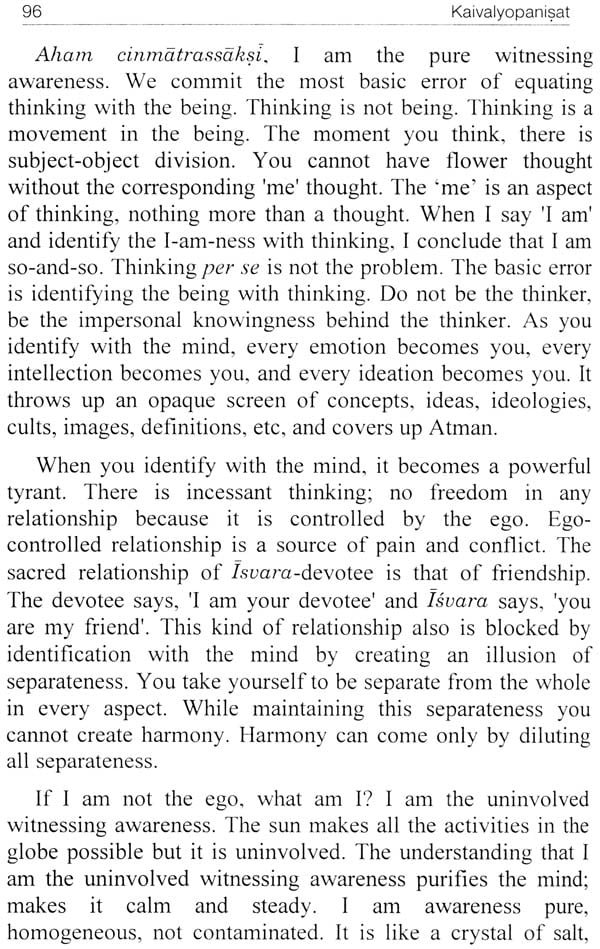
Kaivalyopanisat with The Commentary Tattva Prakasika
Book Specification
| Item Code: | NAK563 |
| Author: | Swami Tattvavidananda Saraswati |
| Publisher: | BRAHMA VIDYA KUTEER |
| Language: | Sanskrit Text With Transliteration and Word to Word Meaning English Transaltion |
| Edition: | 2020 |
| Pages: | 128 |
| Cover: | Paperback |
| Other Details | 8.5 inch x 5.5 inch |
| Weight | 200 gm |
Book Description
Consciously or otherwise, we are in a relentless search for freedom from the fetters of life. Knowledge of the oneness of Reality, kaivalaya confers upon the aspirant moksa, freedom. Any effort to gain this knowledge conjures up the notion of a herculean task that is beyond the ken of human endeavour. Drawing from his deep understanding of the subject matter swami Tattvavidanandaji explains that the illusive freedom is indeed the closest to us, within us. With the tenacity and conviction of one who knows' Swamiji emphatically states that freedom is not a future possibility but it is now, in the present. To gain that insight, the possibility has to become a living thought. In this text, Swamiji opens the portals to that possibility wherein lies the key to the mystery of Freedom, identity with Brahman.
In the first ten verses, the Upanishad enters into an in-depth study of the nature of Brahman. Drawing apt quotations from other Upanishad, Bhagavadgita and Bhagavatam, Swamiji's unfoldment of these verses lends remarkable depth and clarity to the word 'haivalya'.
"Brahman, the Reality, is beyond the descriptive realm. Althoughit cannot be encapsulard by perception or intellecton, it is patents accessible now and here as the source of all cognitions perceptions and intellection. The infinite focusing in the finite is the glory of creation. The totality of the word and the particularity to the individual merge in and arise from Brahmatan.
When we talk of the reality of nature, we use the word 'Brahman' and when we talk of the reality of individual, we use the word 'Atman Nature is divine and the individual is essentially divinity itself.... thus, nature and the individual unite in God, Brahmatman.
For question about the knowledge of Brahman the Self, the reply cannot be direct because the self is not an outside object. It is your true seky. The role of the Scriptures and the teacher is only to show the way. Avehi, you have to know it in yourself, by yourself. The statement that everything is Brahman must become real to you"
The seeming reality of this apparitional manifestation called the world of names and forms is a major hurdle in recognizing its unreal nature. The proclivities of the mind create an illusion of otherness; the mind categorizes and identifies with that duality. The world is absent when the mind is silent because thoughts are nothing but momentary. The world is observational; a creation of the mind. To bring this into focus the text delves into examples from the three states of experience waking, dream and sleep.
Waking consciousness is encased in space – time the entire content of the waking state is in the mind alone. Because the power of thought is extraordinary, the impressions of the waking world appear solid. Seeing seems to validate existence. we project a totality and make ourselves a part of it just as we creat a dream world. The dream state is a model for appreciating the transient, hence, unreal nature of the waking state. The basis of this creation, again, is the mind in ignorance. It is a replica of the waking state. Susupti kale sakale viline, everything resolves at the time of deep sleep. The realization that we are present as the unattached witness, even while the three states rotate, culminates in the knowledge of the Self because Brahman, the Self is the substratum that indwells and upholds the three states.
Soaring to the heights of Advaita, with profound illustrations, Sruti drives home the vision with uncanny precision and corners the aspirant from were he cannot but see the glory of Onness. Endowed with this antahkarana vikasa inner metamorphosis, he then ably relates and responds to the Upanishad's declaration. The entire universe originates, exists and resolves in T. I am that Brahman." (v.19)
"When I identify with the body mind, then as body I become a speck in this universe and as time, an insignificant event in the unending flow of time. whereas, the truth is that space and time originate from me and I am the spaceless, timeless being when Stop identifying with the body mind, the inner stillness that ensues in equivalent to abidance in the Being, which is none other than I The entire problem of samsara, the vicious cycle of pleasure and pain, is addressed for the last time... I am nitya mukta, even liberated."
In summarizing, swamiji extols the vision, "aham isah," I am the Lord. (v.20)
Swami Tattvavidanandaji's masterful navigation through the seeming paradoxes in this text is a beacon guiding the pilgrim to the very frontiers of his quest Oneness of Reality. An earnest journey through these pages could very well act as a catalyst towards the discovery of that Oneness. The final lap of the arduous journey is verily that of the proverbial homecoming of the prodigal son (lost self) wherein he regains kaivalya. With prayerful gratitude to Swamiji for this incredibly insightful spiritual adventure' through the mires of samsara.
